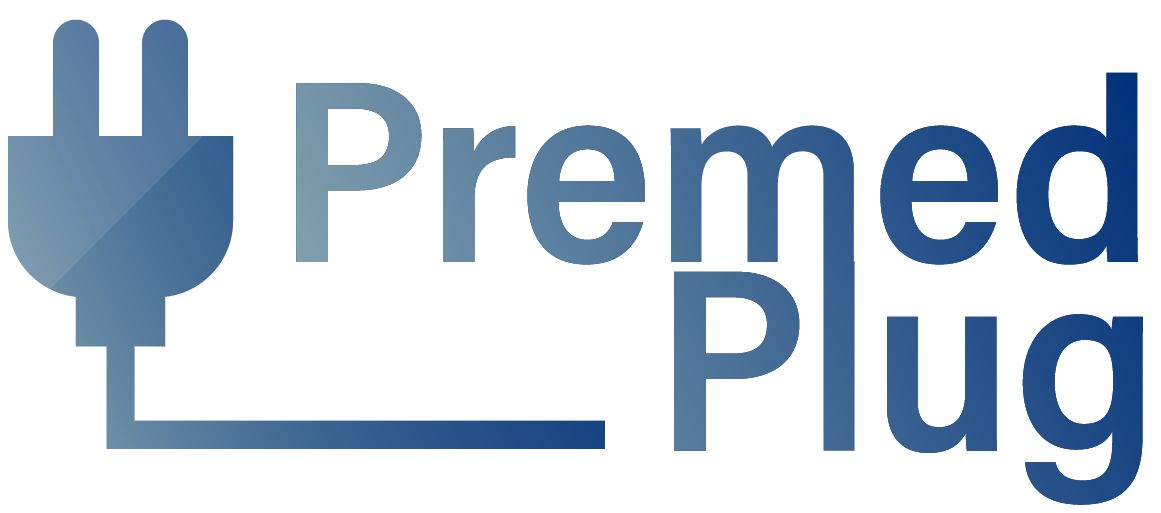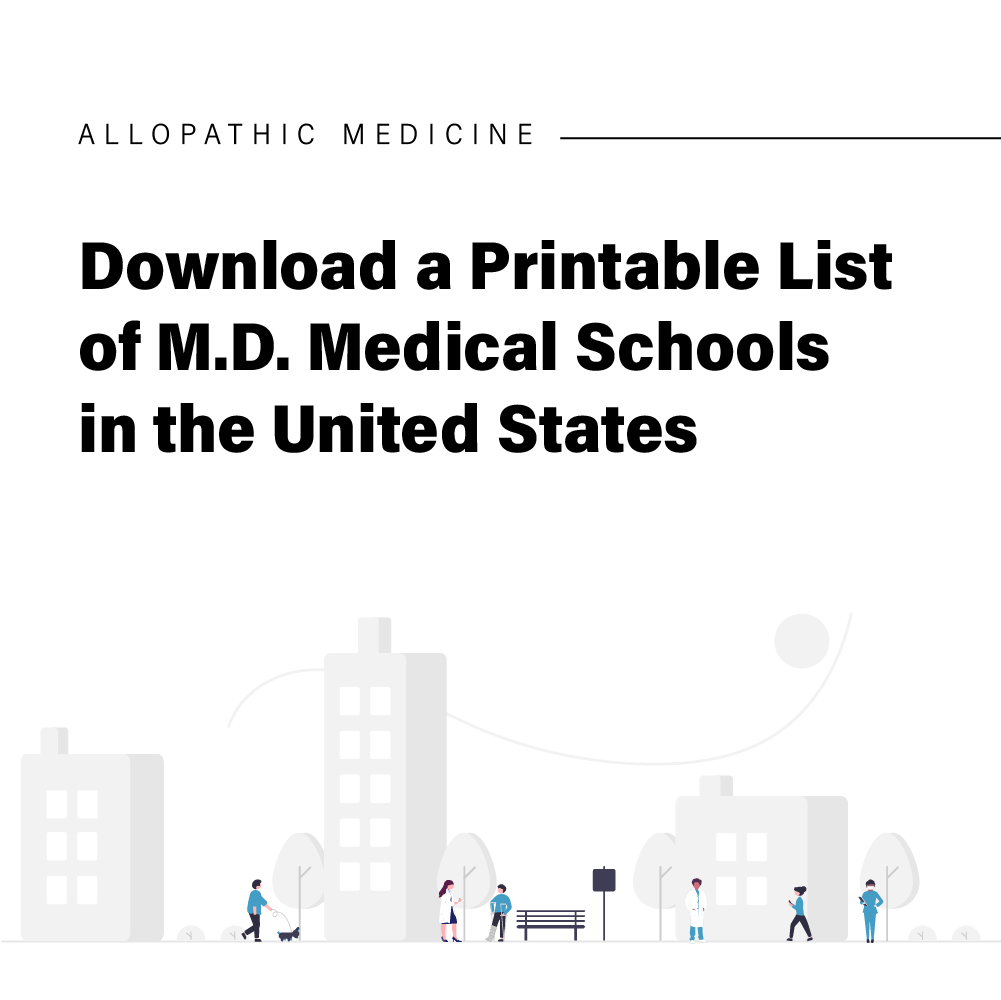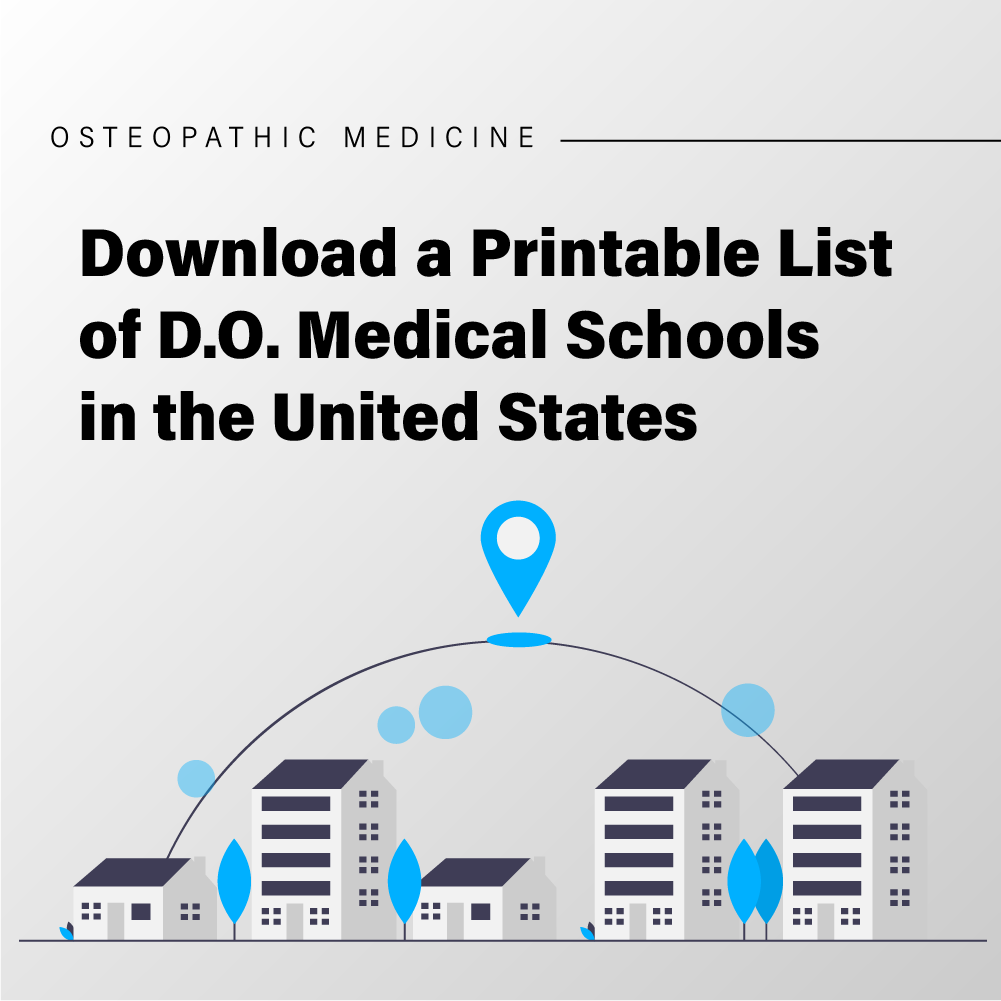Many premed students often ask, what is the difference between a post-bacc and a master’s program? This guide will cover everything you need to know about the two.
It’s no secret that medical school is hard to get into. According to the Association of American Medical Colleges (AAMC), 990,790 applicants applied to medical school in 2022. Out of the 990,790 applicants, only 22,712 successfully matriculated to medical school. (Source).
With so many applicants and such a low acceptance rate, premeds constantly search for ways to make their medical school applications more competitive. In addition to premed summer programs, gaining shadowing experience, and publishing in medical journals, some premeds also choose to do a post-baccalaureate (post-bacc) or a master’s program before applying to medical school.
But what is the difference between these two programs? Will either help you gain admission to medical school? For answers to these commonly asked questions, read on.
What is a post-bacc?
A premedical post-baccalaureate (postbac/post-bacc) program is continued education for students who completed their undergraduate bachelor’s degree but would like to take more classes before applying to professional school (medical school, dental school, or pharmacy school). Programs vary in length and structure depending on the institution. A post-bacc program can help students change careers or enhance their academic records. At the end of the program, students receive a certificate of completion.
Is a post-bacc right for me?
Post-bacc programs are typically designed to help students gain admission to professional school (medical school, dental school, or pharmacy school). Therefore, if you are uncertain about a medical career, a post-bacc program might not be right for you. Similarly, if you are interested in nursing or PA school, a post-bacc program might also not be right for you. However, if you want to boost your GPA or take prerequisite medical school courses before applying to medical school, then a post-bacc program is worth considering.
What are the different types of post-bacc programs?
Every student has a different motivation for considering a post-bacc program. As such, institutions have also created programs that aid in specific academic and professional developments for their students. The three main post-bacc programs for premeds are 1) career changers, 2) academic record enhancers, and 3) master’s programs.
1) Career-changing post-baccs
A career changer program is the best fit for students who have decided to pursue a medical career late. These programs are structured for students who haven’t taken any prerequisites for medical school. Similarly, career-changer programs can be a good option for students who didn’t complete any medical prerequisites during college. These post-bacc programs often provide MCAT prep courses and help with medical school applications. Admission to these programs may require a competitive GPA, but there are no course prerequisites to apply. Therefore, students who majored in non-science or STEM subjects are encouraged to apply.
2) Academic record enhancement post-baccs
For students who need to improve their grades in premedical classes, academic record-enhancing programs are their best choice. These programs’ core curriculum comprises all the prerequisite classes for applying to medical school. This gives students an opportunity to retake all their undergraduate premed classes and earn higher grades that will give them the best chance of being accepted to medical school. Oftentimes, these programs have built-in volunteering opportunities so that students can also boost their volunteering hours and experience. Admission to these programs may require passing grades in the premedical prerequisite courses even if students are meant to retake them.
Although it may seem that retaking the same courses for a better grade is repetitive, these programs offer students the opportunity to build a stronger scientific foundation to succeed in medical school. Admission panels will appreciate your commitment to boosting your academic record and will use your improved GPA for consideration to medical programs.
3) Specialty Master’s programs (SMP) or Biomedical Master’s programs (BMP)
The third kind of post-bacc for premeds is the Master’s program. Masters programs, sometimes called SMPs (specialty masters programs) or BMPs (Biomedical Masters Programs), are one to two-year programs that can help better prepare students for medical school or other professional schools. These graduate programs are often referred to as advanced Master’s programs because students are placed in graduate-level courses alongside first-year medical students. Therefore, the best candidates for Master’s programs are students who have completed their premed requirements with above-average grades. While these grades may not warrant a complete do-over (such as an academic record enhancer post-bacc), a Master’s program offers the opportunity for students to show that they can succeed in graduate-level courses.
How long are post-bacc programs for premeds?
The program length depends on the post-bacc you enroll in. Some post-bacc programs are one year, while others are two years. More often than not, one-year programs consist of advanced science courses outside of the premed prerequisites, which are usually already completed by the student. In many cases, students in one-year post-baccs are looking to enhance their medical school applications and do not need to retake any undergraduate courses. The most common type of 1-year post-bacc program is a Master’s degree program.
On the other hand, two-year post-bacc programs typically require students to complete their premedical prerequisites. Students will take two years of biology, chemistry, physics, and math courses. For this reason, students must dedicate more time to their program completion. Students commonly interested in these two-year programs are looking to work on their GPA and MCAT scores.
How do I choose a post-bacc program?
Post-bacc programs are often designed for specific types of medicine. For instance, some post-bacc programs are designed to prepare you for D.O. medical schools, while others are designed to prepare you for M.D. medical schools.
A comprehensive list of post-bacc programs for allopathic medicine can be found on AAMC’s website. Similarly, a comprehensive list of post-bacc programs for osteopathic medicine can be found on AACOM (American Association of Colleges of Osteopathic Medicine). There are also post-bacc programs designed for students seeking a career in dentistry and pharmacy.
What’s the difference between a post-bacc and master’s program?
Difference #1: Undergraduate vs. Graduate level coursework
A post-bacc program contributes to your undergraduate GPA; a master’s program, on the other hand, contributes to your graduate GPA. Therefore, courses you take a post-bacc program will be undergraduate-level courses. Meanwhile, the courses you take in a master’s program will be graduate-level courses that introduce you to advanced topics in medicine, such as physiology, microbiology, and neuroscience.
Difference #2: Thesis or research requirements
Post-bacc programs do not require a literature thesis, whereas master’s programs might offer the option to complete one or maybe a requirement of their curriculum. As such, master’s programs are divided into two portions: the didactic portion and the thesis portion of the program. The didactic portion of the program consists of coursework requirements on a full-time basis. Students can participate in research or write a literature thesis based on a medical topic of interest during the thesis portion.
Difference #3: Post-bacc programs do not offer an advanced degree. Master’s programs do.
An additional distinction between a post-bacc and master’s program is that you will earn a Master’s of Science or Master’s of Arts degree with the master’s program. A post-bacc program helps you achieve a very direct, short-term goal: gaining admission to medical school. On the other hand, the master’s program can give you more career options in medicine or research while bettering your chances of getting into medical school.
Post-bacc certificates vs. Pre-medical Master’s degree programs
Can’t decide between a post-bacc and pre-medical master’s program? The best way to decide which is the best fit is to reflect on your academic background and goals. Did you get C’s and B’s on your premedical prerequisites? Do you need to retake premed classes? Or are you happy with your undergraduate GPA and need a boost for your application? Below, we list the pros and cons of each program to help you decide.
Post-bacc certificate programs
Pros
- Rebuilds your premedical undergraduate GPA
- Many programs offer linkage admission
- Premed counseling and help with medical school applications
- MCAT coaching and prep courses
- Access to premedical extracurriculars such as shadowing and volunteering
- Students can earn strong letters of recommendation from the program committees or professors
Cons
- Costly: it may be difficult to obtain federal aid
- Does not offer an advanced degree
- Not a good option for students unsure about a career in medicine
- Most require full-time commitments, leaving little room to work outside of school
- Linkage programs may not guarantee admission for a specific school year
Pre-medical Master’s Programs
Pros
- Access to advanced graduate courses in medicine
- You finish with a graduate degree (Master of Science or Master of Arts degree)
- You can develop research skills in a laboratory setting
- Showcase your advanced knowledge with a literature thesis
- Earn strong letters of recommendation from the program committee or professors
Cons
- No premed advising
- Costly: it may not be easy to get federal funding
- Delays your potential acceptance to medical school by three years
- Very rigorous! If you don’t earn strong grades, you will spend a lot of time and money without improving your chances of getting into medical school
- Most require full-time commitments, leaving little room to work outside of school
Formal Post-bacc vs. Do-it-Yourself Post-bacc
To add some flexibility to their schedule, many students have recently opted to pursue DIY post-baccs. Students improve their undergraduate GPAs or fulfill their premedical prerequisites by taking courses at their own pace. However, these students are not part of an official program of an institution.
The best way to undertake a DIY post-bacc is only to take courses relevant to your premed career. For example, your curriculum should consist of all the prerequisites for medical school admission. Another example would be to retake only the courses you got C’s or B’s in. Many students pursue this goal at university extension schools or community colleges, which are open to the public without an extensive admissions process.
Pros of a DIY post-bacc
- Time flexibility: Many college graduates can work full- or part-time while enrolled in courses
- Curriculum personalizations: Students can choose their class schedule based on what fits their personal and academic goals. This flexibility is typically not offered in formal post-bacc or master’s programs, which require full-time attendance and completion of specific classes without exceptions
- May cost less: Students who take a few classes instead of an entire curriculum will pay less overall
Cons of a DIY post-bacc
- No federal aid: Students who have already earned a Bachelor’s degree will not receive federal aid and may need to take a student loan or pay out of pocket for classes
- No premed advising: Students not part of an official program will lack the academic resources that full-time post-bacc students have. This includes access to premed counselors and helps with medical school admissions
- No structure: Students must be disciplined enough to maintain a clear goal and follow their plan without help
- No MCAT prep courses included
Do these programs guarantee entry into medical school?
Although a post-bacc or master’s program can increase an applicant’s competitiveness for medical school admission in many ways (e.g. higher GPA, specialized focus), entry to medical school is not guaranteed. This is because participation in a program like this is only one component of the overall application. This means that while the program can greatly improve one’s chances of being accepted, admissions officers will generally take other factors into consideration, such as a strong personal statement and extracurricular activities.
What is a linkage program?
Some post-bacc and master’s programs are affiliated or have linkage agreements with specific medical schools. This allows students in a post-bacc or master’s program to have a higher chance of gaining entry into a medical school upon meeting certain requirements. When deciding to be a part of a linkage program, there are generally some pros and cons that students should consider.
Pros of a linkage program
- Accelerated timeline: the linkage program usually offers applicants an overall faster application process (applying earlier and getting a decision faster) compared to that of traditional applications
- Less costly: linkage admission allows applicants to save money on applying to multiple medical school programs
- Affiliation benefits: the linkage relationship tends to allow admissions officers to understand one’s application better
Cons of a linkage program
- Binding agreement: since this is a binding program, applicants are required to attend the medical school upon acceptance
- Limited choices: applicants are limited to applying to only those medical schools that hold a linkage agreement with their specific post-bacc or master’s program
- Higher standards: generally, the requirements for linkage admission are higher than for regular applicants to the same school
Will my chances of being accepted to a professional school improve if I complete a post-bacc program?
Like medical school admissions, completing a post-bacc or special master’s program does not guarantee admission to other professional schools. However, it can enhance one’s application by increasing its competitiveness, which is beneficial given the increased volume of applicants each year.
What are the requirements and costs?
GPA Requirements
To qualify for a post-bacc or special master’s program, an applicant must meet minimum GPA requirement(s) and/or exam requirement(s). Generally, programs require a GPA of at least 2.5, but this number is much higher for more competitive programs. It is also important to check with the specific program of interest since some programs have different minimum requirements for science and overall GPA.
Exam Requirements
As for exam requirements, special master’s programs tend to require an MCAT, GRE, or DAT score. Depending on the specific program, other test scores may also be accepted. Similar to GPA requirements, the minimum score needed depends on the specific program.
Cost of Attendance and Financial Assistance
As for the cost of attendance, it also varies across different programs. For certain programs, the cost can be upwards of $50,000, while other programs are much more affordable. This is an important factor to consider before applying.
Federal vs. Private Loans
When financing a post-bacc or special master’s degree program, it is important to thoroughly research the different types of loans available to determine what best fits your financial needs.
Most U.S. student loans are federal loans, while private loans make up a much smaller percentage of the overall number. A FAFSA (Free Application For Federal Student Aid) form must be submitted for review to apply for a federal student loan. On the other hand, private loan applications are handled by private lenders, such as banks and credit unions.
Both of these loan types are beneficial in their own ways. For example, federal loans tend to have much lower fixed interest rates than private loans. On the other hand, private loan limits can be higher than federal loans depending on one’s credit history. Before applying for a post-bacc or master’s program, we recommend reaching out to the program’s financial advisor to find loan options.
Resources
University of Pittsburgh – Biomedical Masters Program
AAMC – Financial Aid Resources (Federal vs. Private Loans)
AAMC- Considering a Postbaccalaureate Premedical Program
Columbia University- Medical School Linkage Admission
Further Reading
MD-PhD Dual Degree Programs List and Information in 2023
MD-JD Dual Degree Programs List and Information 2023



